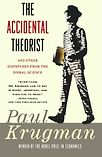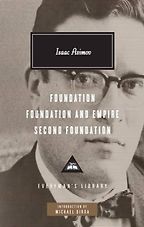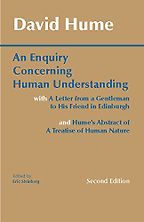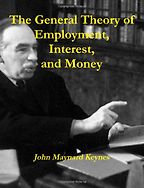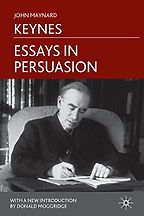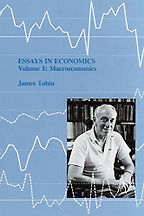I wanted to start by saying how pleased I am you call yourself a liberal, because there are a lot of people – politicians – who are reluctant to be associated with the word these days.
As I see it, there has been a lot of effective propaganda. As a result, a lot of people adopted the term “progressive” as a somehow less charged way of saying the same thing, which I don’t think works. I consider myself both – liberal and progressive. It’s not too different from what would be called a social democrat in Europe – you believe in a decent-sized welfare state, you believe that we are our brothers’ keepers. Of course, I’m not a politician so I can afford to label myself in a way that might lose some votes…
The first book you’ve chosen isn’t about economics at all; it’s a work of science-fiction, Isaac Asimov’s Foundation trilogy. But was it part of what inspired you to become an economist?
Yes. This is a very unusual set of novels from Isaac Asimov, but a classic. It’s not about gadgets. Although it’s supposed to be about a galactic civilisation, the technology is virtually invisible and it’s not about space battles or anything like that.
The story is about these people, psychohistorians, who are mathematical social scientists and have a theory about how society works. The theory tells them that the galactic empire is failing, and they then use that knowledge to save civilisation. It’s a great image. I was probably 16 when I read it and I thought, “I want to be one of those guys!” Unfortunately we don’t have anything like that and economics is the closest I could get.
I do get a sense from your columns in The New York Times that you are on a mission…
Obviously I try to do straight economics and I do it as well as I can. But this is for a purpose. That purpose is not to find better ways of making money – although I have no problem with people doing that. The purpose is actually to make a better world. So yes, I do feel that I am trying to do something that goes beyond just the analysis.
When I read your book, The Conscience of a Liberal, I came to realise that that purpose is to save the middle-class America you grew up in. Do you feel it’s under threat?
It’s not under threat – it’s actually largely, but not completely, gone. We’re trying to recapture it. We really have had a tremendous polarisation [in wealth]. People notice it every once in a while and it comes as a huge revelation to them. So for example, in last week’s New York Times, Nicholas Kristof had a column about how maybe we’re turning into Pakistan. It’s clear that we are not at all the relatively equal middle-class society we were, and we’re getting less so. That’s something you want to try to turn around.
Your second book is An Enquiry Concerning Human Understanding by the 18th-century British philosopher David Hume. You read this in college and it really changed your life.
Yes. I was at that stage, a college sophomore or thereabouts, when you’re searching around, looking for belief systems. I think it’s actually a point when you’re quite vulnerable, because you are looking for someone who is going to offer you all the answers. Some people turn to religious orthodoxy, other people turn to Ayn Rand.
One of my favourite lines – and I haven’t been able to find out who came up with it – is that “There’s an age when boys read one of two books. Either they read Ayn Rand or they read Tolkien’s Lord of the Rings. One of these books leaves you with no grasp on reality and a deeply warped sense of fantasy in place of real life. The other one is about hobbits and orcs.”
“My purpose is not to find better ways of making money, although I have no problem with people doing that. My purpose is actually to make a better world.”
Then I read Hume’s Enquiry, this wonderful, humane book saying that nobody has all the answers. What we know is what we have evidence for. We do the best we can, but anybody who claims to be able to deduce or have revelation about The Truth – with both Ts capitalised – is wrong. It doesn’t work that way. The only reasonable way to approach life is with an attitude of humane scepticism. I felt that a great weight had been lifted from my shoulders when I read that book.
Because before that you felt the pressure to adopt a particular belief system?
I felt the pull of them. You look at people who are very certain, and have these beliefs of one form or another and you think, “Maybe they really know something!” And what Hume says is, “Actually, no. They don’t.”
Wouldn’t some people accuse you of having an extremely strong belief system? Isn’t there a sense among liberals that, “We’re in the right so we don’t have to pay too much attention to conservative or Republican arguments”?
In my experience with these things – which I find both within economics and more broadly – is that if you ask a liberal or a saltwater economist, “What would somebody on the other side of this divide say here? What would their version of it be?” A liberal can do that. A liberal can talk coherently about what the conservative view is because people like me actually do listen. We don’t think it’s right, but we pay enough attention to see what the other person is trying to get at. The reverse is not true.
You try to get someone who is fiercely anti-Keynesian to even explain what a Keynesian economic argument is, they can’t do it. They can’t get it remotely right. Or if you ask a conservative, “What do liberals want?” You get this bizarre stuff – for example, that liberals want everybody to ride trains, because it makes people more susceptible to collectivism. You just have to look at the realities of the way each side talks and what they know. One side of the picture is open-minded and sceptical. We have views that are different, but we arrive at them through paying attention. The other side has dogmatic views.
In one of the books by Keynes you recommended, he quotes Clissold saying of the Labour Party – the left in England at the time – that they have “feelings in place of ideas”. Is that a valid critique of the left?
That’s hardly true of Keynes. What a deeply reasoned piece of work that book is! And I don’t think it’s true of someone like me. Yes, I do have feelings, but take a look, for example, at the debate that’s playing out over healthcare right now. I’d like to say I bring in evidence. I’m not saying, “Here is the way the world ought to be, so it must be that way.” I try to show how different systems work.
As all other developed countries already have universal healthcare, it certainly seems like the right thing for the US to finally do.
But then the question is whether it’s feasible. What does it take? This is the right thing to do, but how do you do it? It’s a combination of modelling it, of looking at evidence from other systems, of looking at evidence from our own system. And provided the thing [The Patient Protection and Affordable Care Act] isn’t overturned in the next couple of years, provided we can make it to 2014 when the system is fully in place, it will become a completely natural feature of American life. It’s not the system I would have designed if I didn’t have to worry about the politics, but I’ll take this highly imperfect system.
Let’s go on to Keynes’s General Theory of Employment, Interest and Money. Unemployment in Keynes’s day was 25%, and this, I believe, is what prompted him to write his famous book. I’ve been trying to read it over the weekend and I was wondering if it isn’t quite hard to understand if you don’t have a Nobel prize in economics? Or at least a PhD?
It is a difficult book, because it’s the first book that tries to figure this stuff out. You don’t teach Keynesian economics from Keynes anymore. Keynes was actually working on The General Theory of Employment, Interest and Money before the Great Depression, but, obviously, the Great Depression gave it urgency. It’s a first stab – it’s one hell of a first stab – but because it is a first stab, it’s got all the awkwardnesses that go with that. He goes off on tangents that seemed important to him at the time, but don’t seem so important now. It’s not an easy read.
Get the weekly Five Books newsletter
It’s a book to be read when you’re a practising economist with a fair bit of research of your own under your belt. Because then, as you read it, you can see the incredible process he’s going through, of freeing himself from the preconceptions of the economic analysis of his time. You can see him saying, “Hey, wait, maybe that’s not right. How can I think this through, how can I make this a story that actually fits the world I see around me?” There is stuff in there where you say, “What the hell is that about?” For example, there’s a whole discussion about the choice of units, which is, in fact, very boring.
But having been through minor versions of that kind of process myself… the mechanics, the plumbing of your theory, is often critical. You work really hard to try to put that together, and Keynes is laying it out as he did it. It’s really breathtaking and inspirational.
In terms of our current situation, and what The General Theory can tell us, the book doesn’t actually say very much about fiscal stimulus or does it?
It’s implied. It’s clear from the book that you can have a problem of inadequate spending and that just printing more money, under some circumstances, does nothing. In that case you have to have the government come in and spend. Elsewhere, Keynes was more explicit about it, but you can deduce it from the framework of The General Theory. Once you understand the logic of the kind of slump we’re in, once you understand it’s very much the same kind of slump we were in in the 1930s, then the case for fiscal stimulus flows out of that analysis.
At one point Keynes says that economics is a “difficult and technical” subject that will eventually be left to specialists, like dentistry.
That’s actually from my next book, his Essays in Persuasion, which are real time analyses, many of them written for popular magazines.
So let’s apply that comment to fiscal stimulus, which is a key issue that you, as a liberal economist, support but most right-wing economists oppose. If economics has become more like dentistry, why, on an issue like stimulus, is the economics community divided between left and right? While dentists might disagree about whether to pull a tooth or not, it probably would not be along ideological lines.
Keynes was really expressing a hope, rather than making a prediction. He was saying I hope that we will eventually become like dentists, that it will be just a technical discipline. And probably that was one place where his wisdom failed him. Because the fact of the matter is there is too much interest at stake in economic policy. In the world in which we now live, there is no such thing as neutral advice or neutral expertise. The division is partly an intellectual division, which is overlaid with a political division. They mostly match up, but not totally.
“In the world in which we now live, there is no such thing as neutral advice or neutral expertise”
The idea of an activist government policy to fight recessions is controversial, and deeply opposed by certain factions, in part because they think it will hurt their interests directly and in part because they fear that it opens the door for an active role for government, for liberalism in general. Then you have the intellectual division, which, in a way, goes back to Hume.
On one side there are the people who start with an axiomatic, “This is the way it must be” view of economics – it’s all about perfectly rational individuals interacting through perfect markets. In that view, there is no room for Keynesian economics, but of course there is also no room for the slumps like the one we’re in. Then there are people who say that maximising behaviour may be a useful strategic simplification, but if it doesn’t seem to fit the facts…
We don’t use it where it doesn’t seem to work. That would be my position. So you have the division within the economics profession over epistemology, you could say, and then a division along political lines. Those two are matching up almost precisely right now.
But how strong is the proof that fiscal stimulus works? At the beginning of the crisis, I asked my sister and her husband, both former colleagues of yours at Princeton about it. They said it wasn’t certain it worked, but given the lack of alternatives, it was better than doing nothing. Is the evidence stronger than that?
I think it’s stronger. We can’t do controlled experiments with economies. You can’t prove something the way you can prove something in physics. But we have a number of pretty clear cases. We have the Great Depression, which was ended by a very large fiscal stimulus, otherwise known as World War II. The 1930s is, in many ways, the best laboratory. You can see that when Mussolini did a military build-up, it expanded the Italian economy exactly as a Keynesian would have predicted.
Get the weekly Five Books newsletter
Of course, it’s not as clear-cut as one would like. It’s not as if you can find someone who is doing a fiscal expansion while holding everything else constant. Life doesn’t work that way. But compared to a lot of other things people believe in economics – about the efficiency of the markets, or what will happen if you raise taxes – it’s a lot better established. There are a lot of propositions in economics that are held with great firmness that actually have no clear historical evidence behind them. Fiscal policy is, if anything, actually a bit better grounded in the evidence.
Let’s talk a bit more about Keynes’s Essays in Persuasion. I think you warned me that you need to know a bit about the history of the time to fully understand it, but I really enjoyed reading it. He has some great comments about stay-at-home wives getting depressed, which I hadn’t expected at all. He’s also very prescient about the Treaty of Versailles and the devastating effects that would have. He really was a Cassandra in that regard. And he has some pretty good predictions about the future, and how prosperous society will become…
Well, some of them. This business about us becoming so rich that people would stop caring about consuming even more, that turns out not to be true. About enough time has passed for that blissful state to have arrived according to him, and somehow greed always finds a way. But yes, the comments on Versailles are amazing.
He also has a bit of a discussion about whether or not he is a liberal. He has this great quote, that “if the Liberal Party is to recover its forces, it must have an attitude, a philosophy and a direction”.
So this is an old Liberal, with a capital L – the Liberal Party of England, which was the old opposition to the forces of conservatism, which was then displaced by the rise of the Labour Party [which was further to the left] in the first half of the 20th century. That’s a very different kind of problem from what we have now. Keynes was not happy with the Labour Party. I suspect had I lived in his time I would have been more sympathetic to the Labour Party than he was, but he was obviously repelled by the Conservatives.
I think it was the Liberals who introduced the beginnings of a welfare state in England, though.
They introduced some pieces of it. The full thing came from the Labour Party after World War II. And obviously Keynes supported that. We probably could say that Keynes was what we could call a liberal in America now, or a moderate social democrat in Europe.
But you think you’re a bit further to the left than Keynes? You’re definitely more pro-trade union than he was.
I think that’s partly because I’ve got an additional 75 years of, critically, US political economy to look back at. I’m a bit uncertain about the strictly economic role of trade unions, but the political importance of having a counterweight to big business is just overwhelming.
As your last book, you’ve chosen James Tobin, Essays in Economics. You mentioned in an email to me that this is for professionals only, but tell me a bit about it and why you like it.
I took introductory economics with Jim Tobin. He was a great economist and I learned an enormous amount from him, though he isn’t very fashionable these days. This is a collection of his best papers, which I read, admittedly a long, long time ago. But when I go back to it, I realise how much I’ve internalised Tobin’s approach. Some way into this crisis I realised how much I was relying on his way of thinking about how financial markets work. It was an approach that was pragmatic and yet model-based.
Five Books interviews are expensive to produce. If you're enjoying this interview, please support us by donating a small amount.
It went very much out of fashion as we shifted towards thinking of everything in terms of efficient markets, perfect use of information et cetera. And unjustly so, because that [newer approach] turns out to be no help at all in thinking about things like, “Well, what does Ben Bernanke’s latest policy actually do to the economy?”
“We probably could say that Keynes was what we could call a liberal in America now, or a moderate social democrat in Europe”
The book is like The General Theory – Tobin is a much clearer writer than Keynes, though a little less stylish. Again, he’s pragmatic – we’ve got tools of economic modelling, but we need to apply them in a way that deals with the world as we find it. Politically Tobin was very much a free-market, welfare-state Keynesian, as I am. We appreciate markets, we understand them, we don’t hate rich people, but we want a social safety net and you do need government intervention to avoid what we are going through right now.
Tobin’s early work was very much admired, and of course he won the Nobel prize in 1981. But my understanding is that when the rational expectations revolution happened, he didn’t take it seriously enough, and was a bit of an inflexible Keynesian in his later years?
He was. He resisted it, and he probably resisted it a bit too much. But the fact of the matter is that a lot of the things he thought were nonsense actually turn out to be nonsense. He didn’t handle it very well, and his hostility to the new trends in macroeconomics after about 1975 or so made him look like an old fuddy-duddy to many people.
But he has actually been vindicated by events. In the light of recent events, I’d say he was mostly right. His instincts were not 100%, but he was 80% right.
Are you still in favour of a Tobin tax?
It’s funny he became famous for that. It was almost a suggestion in passing and it wasn’t the core of his work. On the Tobin tax, I always thought the administrative difficulties were very high. Since then people have been telling me it’s not as hard as you think. If it could be done, I would favour it, but it’s not the main thing I’m looking for, it’s not the core of what I’m in favour of.
What’s your view of fiscal stimulus with a balanced budget?
There is a theory that you can have balanced budget stimulus. I think it’s a little bit too cute. It’s something that maybe, in principle, could work, but in practice I wouldn’t count on it. I actually believe that, right now, deficits are our friend. Not long-term, but for now, we need deficit spending. I also think that if we didn’t have the deficits we have right now we would be in the middle of a second Great Depression.
And hasn’t QE2 [the second round of quantitative easing] been a bit of a failure? I heard that banks have been using it to make money on carry trades, basically negating its impact.
It had some effect. Mostly on the expectations side. That is a long story. There was a whole group of us at Princeton, about 10 years ago, who were worrying about, “What do you do if you find yourself in a situation like we are in now, where short-term interest rates are zero and that’s not low enough?” There was a division of views between one side, which is the side that I was on, which said that you have to work through expectations. On the other side was Ben Bernanke. He said that you could do it through expanding the Fed’s balance sheet. Now we’re very much playing out those arguments in real time.
Get the weekly Five Books newsletter
I guess I’d say that QE2 was helpful. I think we forget fairly quickly how much panic there was about the state of the economy last summer. I would be in favour of doing more, though I’m not highly confident that it will do everything we need.
We’ve talked about older books. What about a modern Keynesian? Whose work do you most admire right now?
Michael Woodford is probably our leading technical Keynesian theorist. He does beautiful stuff. But there are a whole bunch of people whose work I read because they either do the empirical work or just have a good way of thinking about it. Then there are people who are effectively Keynesians, although that’s not where most of their work is. Joe Stiglitz is just a spectacular economist, who has done work that has been the basis of half a dozen fields. I’m unstinting in my admiration there.
Five Books aims to keep its book recommendations and interviews up to date. If you are the interviewee and would like to update your choice of books (or even just what you say about them) please email us at [email protected]

